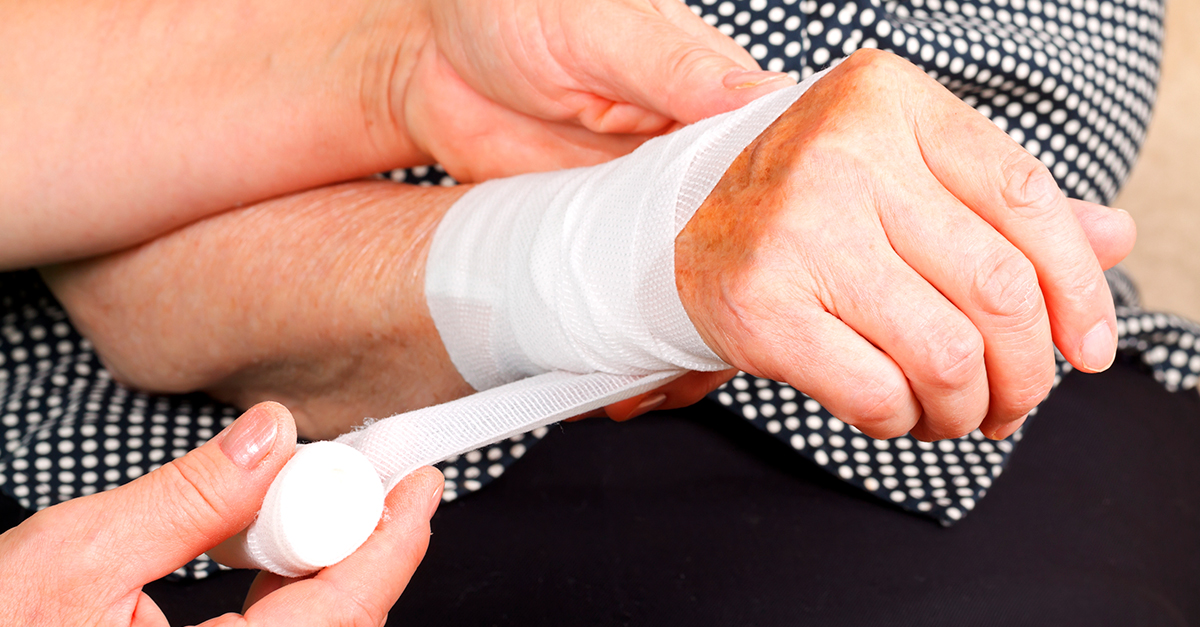
That little cut on your finger may not seem like a big deal, but leave it untreated and it may lead to a big problem: infection. That's serious business for cancer patients, who are at greater risk of infections and the consequences that often result. The Centers for Disease Control and Prevention (CDC) estimates that about 60,000 cancer patients are hospitalized with infections every year in the United States.
"If you get a fever during your chemotherapy treatment, it’s a medical emergency," the CDC website insists. Mashiul Chowdhury, MD, Chief of Infectious Diseases at Cancer Treatment Centers of America® (CTCA), agrees. "Any fever during cancer-targeted therapy needs to be evaluated immediately," he says.
Side effects of treatment
Some cancers may compromise the immune system and put patients at a higher risk of infection. In most cases, however, the treatment is what predisposes patients to infection. For example, chemotherapy may lead to a condition known as neutropenia, a dramatic reduction of white blood cells. These cells, called leukocytes, include B-cells, T-cells and NK-cells (natural killer cells) that help fight infections and viruses. Reduce their numbers, and infections may run amok. Chemotherapy-induced neutropenia may also trigger what’s known as an endogenous infection, which is caused by bacteria already in the body. Bacteria in the gastrointestinal system, for instance, may spread to the bloodstream through a process called translocation, causing sepsis—a system-wide infection.
Some immunotherapies are designed to jumpstart the immune system, prompting it to seek out and kill cancer cells. But these supercharged immunities may also target some healthy cells, triggering side effects that sometime lead to infection. Radiation may damage skin cells, which may lead to infection. There is a risk of infection from surgery, and cancer patients must take great care to keep surgical wounds clean to reduce the risk of secondary infections. And if they use certain medical devices, such as catheters or ports that deliver cancer drugs to the body, they should be aware of the infection risk and take steps to mitigate it.
Developing an infection may make treating the cancer more complicated—and vice versa. "When a patient has an infection, it delays their therapy," Dr. Chowdhury says. "You need to eradicate the infection before you can start another cycle of chemotherapy or radiation therapy or perform any surgical procedures. Preventing or eradicating infection is vital to continuing their cancer-targeted therapy." Also, doctors must be on the lookout for side effects caused by antibiotics in patients who are already dealing with treatment-related side effects, such as rashes, upset stomach, diarrhea or reduced kidney function.
Tips for preventing infection
Dr. Chowdhury offers this advice to help patients prevent infection during cancer treatment:
Be vigilant. Watch out for warning signs such as fever, fatigue, cough or diarrhea. Keep cuts, scrapes or surgical scars clean and beware of swelling or redness.
Practice good hygiene. Wash your hands often with warm water and soap. Keep your home clean.
Avoid large crowds. Stay away from people you know may be sick.
Get vaccinated. Make sure your immunizations are up to date.
Eat well and stay hydrated. Do not share food, drinking glasses or utensils with others. Avoid raw or undercooked foods. Eat and drink only pasteurized juice or dairy products.
And Dr. Chowdhury also urges physicians to be "judicious" when prescribing antibiotics to their patients. "We should be careful about giving unnecessary antibiotics," he says. "Over-use of antibiotics can help create multi-drug resistant organisms. We need to make sure our tool to fight against infection doesn't become an adversary."


